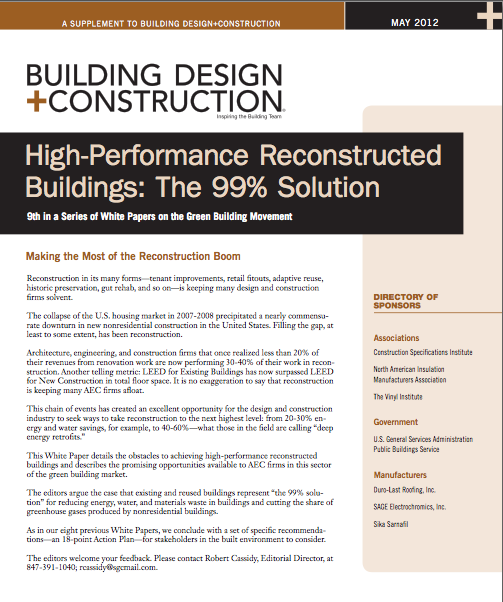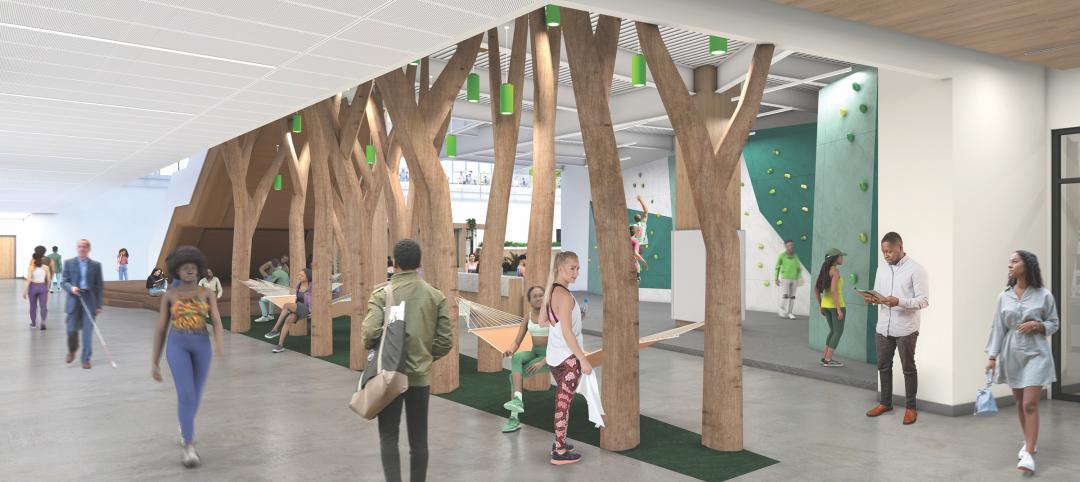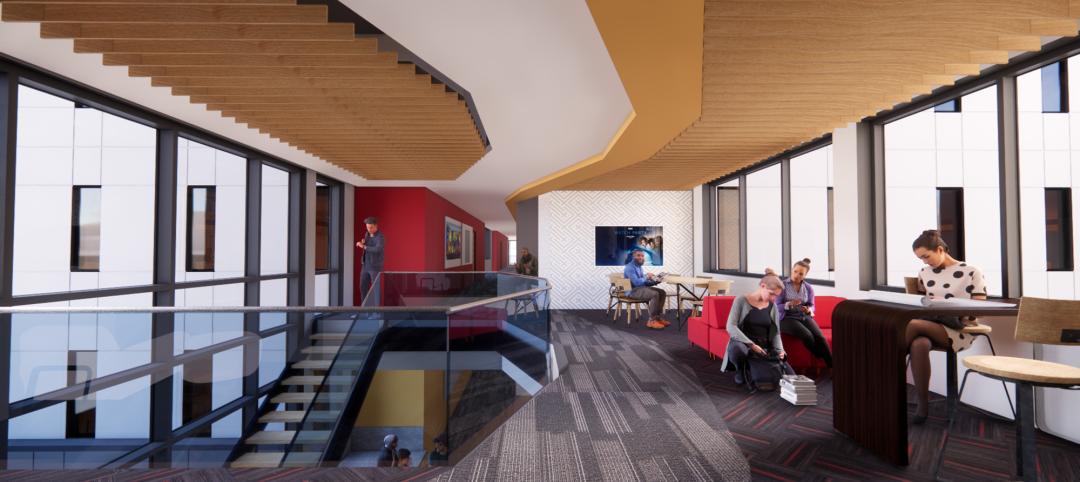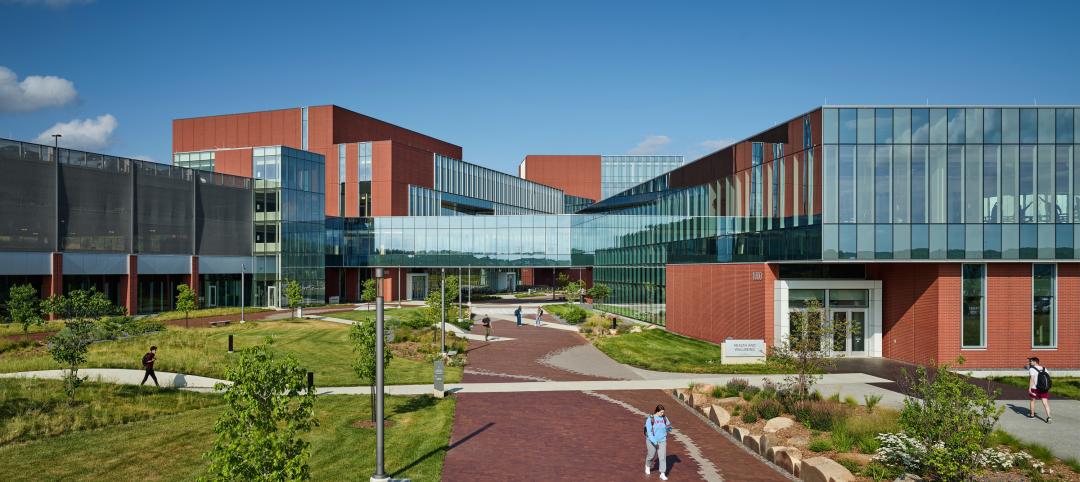Reconstruction in its many forms—tenant improvements, retail fitouts, adaptive reuse, historic preservation, gut rehab, and so on—is keeping many design and construction firms solvent.
The collapse of the U.S. housing market in 2007-2008 precipitated a nearly commensurate downturn in new nonresidential construction in the United States. Filling the gap, at least to some extent, has been reconstruction.
Architecture, engineering, and construction firms that once realized less than 20% of their revenues from renovation work are now performing 30-40% of their work in reconstruction. Another telling metric: LEED for Existing Buildings has now surpassed LEED for New Construction in total floor space. It is no exaggeration to say that reconstruction is keeping many AEC firms afloat.
This chain of events has created an excellent opportunity for the design and construction industry to seek ways to take reconstruction to the next highest level: from 20-30% energy and water savings, for example, to 40-60%—what those in the field are calling “deep energy retrofits.”
This White Paper details the obstacles to achieving high-performance reconstructed buildings and describes the promising opportunities available to AEC firms in this sector of the green building market.
The editors argue the case that existing and reused buildings represent “the 99% solution” for reducing energy, water, and materials waste in buildings and cutting the share of greenhouse gases produced by nonresidential buildings.
As in our eight previous White Papers, we conclude with a set of specific recommendations—an 18-point Action Plan—for stakeholders in the built environment to consider.
The editors welcome your feedback. Please contact Robert Cassidy, Editorial Director, at 847-391-1040; rcassidy@sgcmail.com.
Click here to download a PDF of High-Performance Reconstructed Buildings: The 99% Solution, the 9th in a Series of White Papers on the Green Building Movement
Chapter 1 Reconstruction: ‘The 99% Solution’ for Energy Savings in Buildings
Chapter 2 Exemplary High-Performance Reconstruction Projects
Chapter 3 How Building Technologies Contribute to Reconstruction Advances
Chapter 4 Business Case for High-Performance Reconstructed Buildings
Chapter 5 LEED-EB and Green Globes CIEB: Rating Sustainable Reconstruction
Chapter 6 Energy Codes + Reconstructed Buildings: 2012 and Beyond
Chapter 7 When Modern Becomes Historic: Preserving the Modernist Building Envelope
Chapter 8 High-Performance Reconstruction and Historic Preservation: Conflict and Opportunity
Chapter 9 The Key to Commissioning That Works? It Never Stops
Chapter 10 Action Plan: 18 Recommendations for Advancing Sustainability in Reconstructed Buildings
DIRECTORY OF SPONSORS
Associations
Construction Specifications Institute
North American Insulation Manufacturers Association
The Vinyl Institute
Government
U.S. General Services Administration Public Buildings Service
Manufacturers
Duro-Last Roofing, Inc.
SAGE Electrochromics, Inc.
Sika Sarnafil
Related Stories
Construction Costs | Oct 16, 2024
Construction Crane Index: Most major markets’ crane counts increase or hold steady in third quarter
Rider Levett Bucknall’s (RLB’s) latest Crane Index and Quarterly Cost Report shows continued decreasing cost inflation and crane counts increasing or holding steady in 10 of the 14 major markets it surveyed. The national average increase in construction costs was 1.07%, the lowest it’s been in the last three years.
AEC Tech | Oct 16, 2024
How AI can augment the design visualization process
Blog author Tim Beecken, AIA, uses the design of an airport as a case-study for AI’s potential in design visualizations.
University Buildings | Oct 15, 2024
Recreation and wellness are bedfellows in new campus student centers
Student demands for amenities and services that address their emotional and mental wellbeing are impacting new development on college campuses that has led to recreation centers with wellness portfolios.
Higher Education | Oct 14, 2024
Higher education design for the first-gen college student
In this Design Collaborative blog, Yogen Solanki, Assoc. AIA, shares how architecture and design can help higher education institutions address some of the challenges faced by first-generation students.
Performing Arts Centers | Oct 10, 2024
Studio Gang's performing arts center for Hudson Valley Shakespeare breaks ground
A new permanent home for Hudson Valley Shakespeare, a professional non-profit theater company, recently broke ground in Garrison, N.Y. The Samuel H. Scripps Theater Center includes a 14,850 sf performance venue that will serve as a permanent home for the theater company known for its sweeping open-air productions of classics and new works.
Sustainable Design and Construction | Oct 10, 2024
Northglenn, a Denver suburb, opens a net zero, all-electric city hall with a mass timber structure
Northglenn, Colo., a Denver suburb, has opened the new Northglenn City Hall—a net zero, fully electric building with a mass timber structure. The 32,600-sf, $33.7 million building houses 60 city staffers. Designed by Anderson Mason Dale Architects, Northglenn City Hall is set to become the first municipal building in Colorado, and one of the first in the country, to achieve the Core certification: a green building rating system overseen by the International Living Future Institute.
3D Printing | Oct 9, 2024
3D-printed construction milestones take shape in Tennessee and Texas
Two notable 3D-printed projects mark milestones in the new construction technique of “printing” structures with specialized concrete. In Athens, Tennessee, Walmart hired Alquist 3D to build a 20-foot-high store expansion, one of the largest freestanding 3D-printed commercial concrete structures in the U.S. In Marfa, Texas, the world’s first 3D-printed hotel is under construction at an existing hotel and campground site.
University Buildings | Oct 9, 2024
Des Moines University Medicine and Health Sciences opens a new 88-acre campus
Des Moines University Medicine and Health Sciences has opened a new campus spanning 88 acres, over three times larger than its previous location. Designed by RDG Planning & Design and built by Turner Construction, the $260 million campus features technology-rich, flexible educational spaces that promote innovative teaching methods, expand research activity, and enhance clinical services. The campus includes four buildings connected with elevated pathways and totaling 382,000 sf.
Student Housing | Oct 9, 2024
University of Maryland begins work on $148 million graduate student housing development
The University of Maryland, in partnership with Campus Apartments and Mosaic Development Partners, has broken ground on a $148.75 million graduate student housing project on the university’s flagship College Park campus. The project will add 741 beds in 465 fully furnished apartments.
Healthcare Facilities | Oct 9, 2024
How healthcare operations inform design
Amanda Fisher, Communications Specialist, shares how BWBR's personalized approach and specialized experience can make a meaningful impact to healthcare facilities.

















